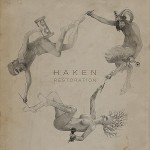Abi Sutherland made a very good point on Twitter a couple of days ago comparing the troll problem with the spam problem.
A few years back, spam threatened to overwhelm the internet. Our email inboxes were getting flooded with fake Viagra and make-money-fast schemes that drowned out legitimate communications. Likewise bot-generated comment spam meant that any blogger that wanted to enable comments either needed to spend vast amounts of time hand-moderating comments or see their comment sections flooded with garbage.
The spammers and their apologists used to say “Just delete it”, and then whined about freedom of speech every time anyone proposed anti-spam solutions.
We didn’t let the spammers win. Instead we built reputation systems like Akismet, and we added Bayesian filtering to our email, and it turned the tide. They weren’t 100% effective, and did generate the occasional false positive, but they have reduced spam to a manageable problem.
Today we’ve got a huge problem with trolls. They reduce the signal-to-noise ratio across so many sites that “don’t read the comments” and “bottom half of the internet” are commonly used phrases. They harass people online to the extent that far too many people with something worthwhile to say end up being hounded off social media.
Trolls can kill productive conversation. “Just ignore them” is equivalent to “Just delete it”.
Dealing with trolls is a hard problem. Trolling is vastly more subjective and context-dependent that spam. Building an equivalent reputation system based upon who’s favourited or blocked blog comments and social media posts won’t be an easy task. Building one that reduces the impact of bad behaviour without creating dangerous echo-chambers may prove even harder. But it can’t be an impossible task either.
 After a long gap between 2007′s “Dead Reckoning” and 2012′s “March of Progress”, Surrey-based prog-metallers Threshold are back with another new album, their second since the return of singer Damien Wilson for his third stint in the band.
After a long gap between 2007′s “Dead Reckoning” and 2012′s “March of Progress”, Surrey-based prog-metallers Threshold are back with another new album, their second since the return of singer Damien Wilson for his third stint in the band. The Pineapple Thief are one of those bands within the progressive rock scene who take a modern streamlined approach to their music, focusing on textures, atmospherics and strong melodies rather than complex instrumentation. Their last few albums have taken a zigzagging musical course, with the moments of dance/electronica on “Someone Here Is Missing” and the harder-edged guitar-driven sound of “All The Wars”.
The Pineapple Thief are one of those bands within the progressive rock scene who take a modern streamlined approach to their music, focusing on textures, atmospherics and strong melodies rather than complex instrumentation. Their last few albums have taken a zigzagging musical course, with the moments of dance/electronica on “Someone Here Is Missing” and the harder-edged guitar-driven sound of “All The Wars”. The one time Led Zeppelin frontman returns with the strongest album he’s recorded in several years. More eclectic than than the Americana of his previous record, 2010′s “Band of Joy”, it’s a blend of English rock and folk with African and Middle Eastern sounds, and even the occasional blast of hard rock guitar. While this is familiar sonic territory for Plant, this album has more fire than his last couple of albums.
The one time Led Zeppelin frontman returns with the strongest album he’s recorded in several years. More eclectic than than the Americana of his previous record, 2010′s “Band of Joy”, it’s a blend of English rock and folk with African and Middle Eastern sounds, and even the occasional blast of hard rock guitar. While this is familiar sonic territory for Plant, this album has more fire than his last couple of albums. Haken are in the vanguard of the latest generation of progressive rock bands. The six-piece came of age with their acclaimed third album, 2013′s “The Mountain”, on which they moved beyond the obvious influences on earlier records to develop a musical identity of their own.
Haken are in the vanguard of the latest generation of progressive rock bands. The six-piece came of age with their acclaimed third album, 2013′s “The Mountain”, on which they moved beyond the obvious influences on earlier records to develop a musical identity of their own. I am getting sick of #GamerGate on Twitter, especially when I have online acquaintances on both “sides”. There way too much toxicity swilling aroud the whole thing, to which people on both sides are contributing. It’s yet another example of the failure mode of “Hashtag activism”, and I know I’m not the only person who wonders if all this negativity is sucking out all the positive aspects of Twitter.
I am getting sick of #GamerGate on Twitter, especially when I have online acquaintances on both “sides”. There way too much toxicity swilling aroud the whole thing, to which people on both sides are contributing. It’s yet another example of the failure mode of “Hashtag activism”, and I know I’m not the only person who wonders if all this negativity is sucking out all the positive aspects of Twitter.